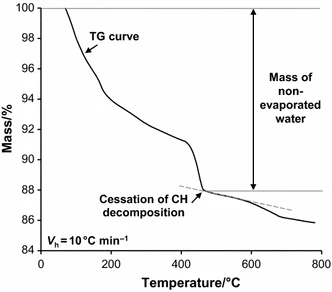- 11 November 2015
- Posted by: nemcatgroup
- Category: Publications

Partially hydrolysed polyvinyl alcohols (PVAs) are used commonly in polymer-modified mortars to manipulate their properties. These PVAs undergo hydrolysis in wet cement which results in the release of acetate groups into the pore water. To evaluate their contribution to cement hydration, the present work investigates the impact of acetic acid on the early hydration of off-white Portland cement using glacial acetic acid concentrations of up to 0.20 mass% (cement basis). To this end, the heat flow of the hydration of unmodified and acetic acid-modified cement pastes was monitored over the first 24 h following mixing using isothermal calorimetry, and the mineralogical compositions of these cement pastes were determined using quantitative X-ray diffraction analysis. Acetic acid addition showed a mixed effect. The slow reaction period was extended; in the acceleration period, the hydration of C3S to form calcium silicate hydrate (C-S-H) and Ca(OH)2 (CH) and the hydration reaction of C3A and gypsum to form ettringite were retarded; in the deceleration period, the exsolution of CaSO4 and renewed formation of ettringite were delayed, while the formation of monosulphate was accelerated. These effects were enhanced with increasing acetic acid concentration up to a surface adsorption acetate saturation level that could be identified from the curves of heat flow.
